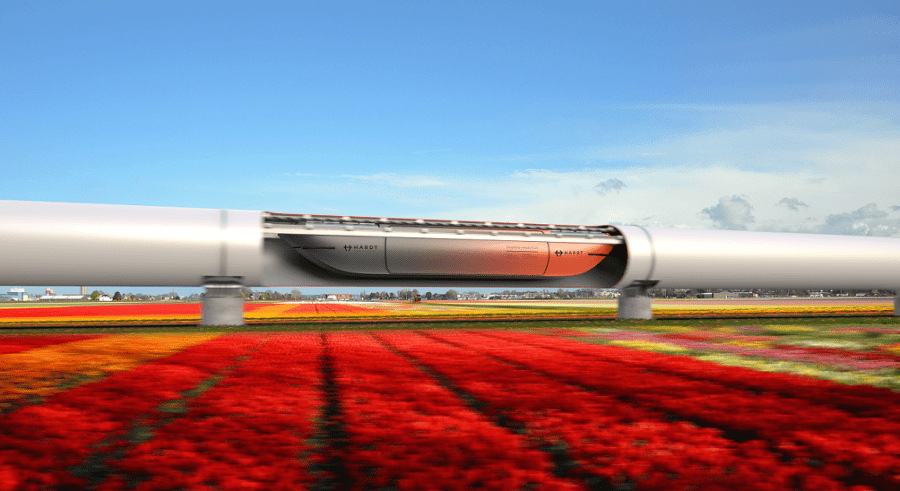Flanders is analysing what role it could play in the rollout of the "hyperloop" network, a new mode of transport previously invested in by Elon Musk that allows goods and people to travel in pods through tubes at speeds of up to 1,000 km/h.
The VIL, the government's contact point for the logistics sector, has been appointed as the region's "hyperloop manager" by Flemish Minister of Innovation Hilde Crevits to analyse the concrete interest and capacity of the Flemish industry and universities.
"The possibilities of the hyperloop system are phenomenal, and in the future, it would be an important step towards reducing the transport of goods by road", according to Crevits.
The mode of transport consists of a network of tubes which will either be located above or underground to connect different cities and regions, and the "pods" in which people or goods would be placed are moved in a vacuum at high speed between the different connections in the network.
Although it can go up to 1,000 km/h, "taking into account slope and curves, a maximum speed of 500 km/h is more likely," according to Crevits.
If a connection would be placed between Brussels and Antwerp, the commute could be taken down to six minutes, whilst a connection with Schiphol Airport could reduce travel time to 21 minutes from three hours by train.
Related News
- Port of Antwerp to invest €40 million in bicycle paths
- STIB to make tram network more accessible for wheelchair users
- SNCB's new cycling strategy aims to make it easier to combine bike and train
The VIL will now concretise the recommendations in this study by the Agency for Innovation and Enterprise (VLAIO) in 2019 when it conducted an exploratory study focusing mainly on the development of components requiring strong industrial capacity and academic knowledge.
"The hyperloop system is a combination of existing technologies from different industries that together form a new mobility solution. That is precisely where Flanders, as a knowledge economy, has assets," Crevits said.
The initial test infrastructure of the hyperloop system will be developed in Delft, in the Netherlands, where the first hyperloop tunnel in Europe was developed by a group of former students, and in France, according to Crevits.
Last February, a joint technical committee (JTC) called JTC 20 was created on a European level to define, establish, and standardise the methodology and framework to regulate hyperloop travel systems and ensure interoperability and high safety standards throughout Europe.
In the United States, Tesla founder Elon Musk has been investing in the research and development of the hyperloop network for years.

